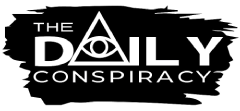The death of San Jose Mercury News reporter Gary Webb seemed to close a chapter on a controversial story that had rocked the media and the CIA. Webb had delved deep into the crack cocaine trade in the United States, shedding light on the agency’s alleged involvement. However, his 1996 “Dark Alliance” series faced intense scrutiny from major American media outlets, leading to his tragic suicide in 2004.
Despite Webb’s passing, the allegations he raised continued to reverberate in popular culture. Hollywood movies like “Kill the Messenger” and “American Made” kept the story alive, intertwining the worlds of intelligence and crime in captivating narratives. The CIA, in response, released a 1997 article from its house journal, framing the controversy as part of a broader public distrust in government, downplaying its own role in the narrative.
Nicholas Dujmovic, the author of the CIA article, portrayed the “Dark Alliance” affair as a reflection of societal skepticism rather than CIA wrongdoing. He lamented the lack of public appreciation for the agency’s efforts, attributing the controversy to emotional and coarse societal dynamics rather than factual scrutiny.
The Kerry Report, referenced in Dujmovic’s article without mention, provided damning insights into the CIA’s activities during the Contra war era. While it didn’t directly implicate the CIA in drug trafficking orchestration, it revealed significant ties between Contras and drug smugglers, highlighting a pattern of complicity and negligence within government agencies.
The report underscored instances where officials turned a blind eye to drug-related activities, benefiting from partnerships with individuals involved in narcotics trafficking. The CIA’s reluctance to sever ties with such individuals, as noted by Frederick Hitz, the agency’s inspector general, lent credence to accusations of complicity.
Media gatekeeping, as highlighted by Peter Kornbluh, played a pivotal role in shaping public perception. While Webb’s reporting sparked initial interest, major outlets downplayed or criticized his work, diverting attention from substantive issues to journalistic infighting. The controversy surrounding Webb’s series and subsequent media scrutiny revealed systemic challenges in investigative reporting and media accountability.
The CIA’s entanglement in drug-related activities, whether direct or indirect, remains a contentious topic. The intersection of national security interests, covert operations, and illicit networks underscores the complex web of alliances and compromises that defined Cold War-era policies. Webb’s legacy, despite the challenges he faced, continues to serve as a reminder of the complexities and ethical dilemmas inherent in intelligence operations and media scrutiny.

